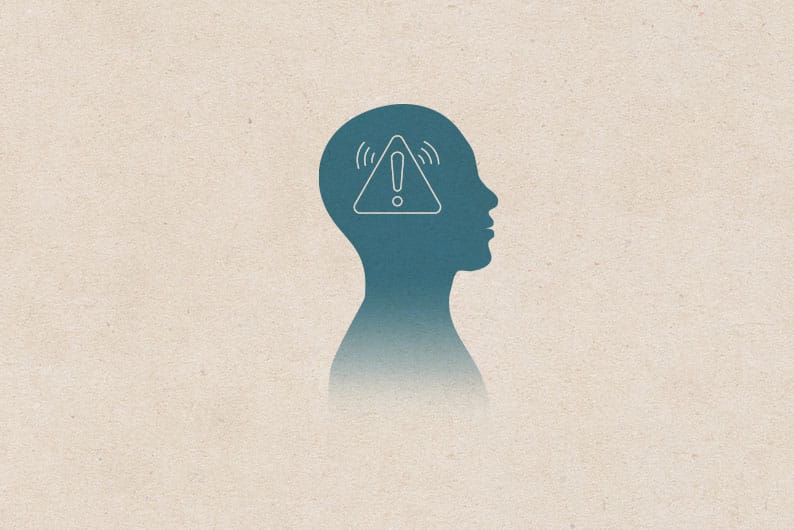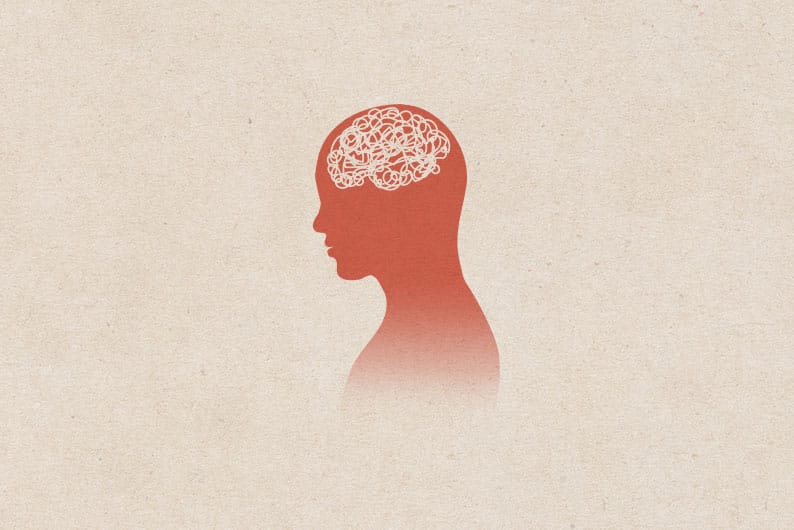What Is Child Sexual Abuse?
Child sexual abuse occurs when an adult or another child in a position of power engages in sexual activity with a minor. It is a form of child abuse.
By law, a minor under the age of legal consent is unable to give consent to a sexual act. Thus, any sexual activity with said minor is unlawful.
Child sexual abuse can, but does not always involve physical contact between an abuser and a victim. Child sexual abuse may include any of the following sexual acts committed against a minor:
- Sexual communications with a minor via text, phone calls or other digital platforms
- Exposing a minor to pornography
- Taking sexually explicit photos of a minor
- Asking, coercing or blackmailing a minor to take sexually explicit photos of themselves
- Distributing sexually explicit photos of a minor
- Inappropriate touching or groping of a minor
- Exposing oneself to a minor
- Masturbation in the presence of a minor
- Masturbation of a minor
- Sexual intercourse of any kind with a minor
- Trafficking a minor to engage in sexual acts with others
Unlike other forms of sexual violence, child sexual abuse may not involve physical violence or threats. Often, an abuser manipulates a victim through a process known as grooming.
Do you suspect a child is being sexually abused? Are you a current victim of child sexual abuse?
Learn more about how to respond to current abuse as a victim or voluntary reporter >
What Is Grooming?
Many adults who sexually abuse children engage in a process called grooming. Grooming is the process by which a predator builds trust and an emotional connection with a victim. This trust allows an abuser to manipulate the victim into taking part in sexual acts.
Anyone can engage in grooming, regardless of age, race, gender, social rank or religion.
In some cases, abusers may coerce or persuade their victims to marry them to avoid prosecution. Unfortunately, child marriage is permitted in all but six states (Delaware, Minnesota, New Jersey, New York, Pennsylvania and Rhode Island). However, marital rape is a crime in all 50 states, so nonconsensual sex with a minor is illegal, even in child marriage.
Sexual abusers may also groom the caregivers of a child. By building trust with family members or caregivers, abusers are often able to gain increased access to the child.
For example, many Catholic priests sexually abused minors while traveling together. The families of these victims willingly entrusted the safety of their children to these abusive clergy members.
What Is Child Sexual Exploitation?
Child sexual exploitation refers to an exchange of something valuable for sexual activity with a minor. It may also include a promise to exchange something valuable, even if the exchange does not take place. Child exploitation is a form of child sexual abuse. It is also commonly referred to as “commercial child sexual exploitation.”
A minor accepting something of value in exchange for sexual favors should not be seen as consent. A minor cannot legally consent to sexual activity.
Common forms of child sexual exploitation include:
- Child sex trafficking
- Taking pictures of a minor for pornographic use
- Asking, coercing or blackmailing a minor to take pictures of themselves for pornographic use
- Inappropriately watching while a minor changes clothes or bathes
- Sex tourism involving a minor
When an adult provides a minor with payment, housing, food, goods or services in exchange for any of the items listed above, they are sexually exploiting a minor.
The National Center for Missing and Exploited Children offers resources to victims and family members dealing with the trauma of child sexual exploitation. Contact the organization today by calling their 24-Hour Call Center at 1-800-THE-LOST (1-800-843-5678).
Child Sexual Abuse Terminology
Child sexual abuse is commonly referred to as “child sexual assault” or “child molestation.” However, depending on the circumstances of the abuse, these terms may not be accurate for every case.
Historically, the term “child molestation” has often referred to the sexual abuse of a prepubescent child. Many victim advocates now prefer the term “child sexual abuse” because it is inclusive of more survivors.
The term “child sexual abuse” is all-encompassing. According to the advocacy organization Darkness To Light, it leaves “no room for misinterpretation or confusion.”
Victims Of Childhood Sexual Abuse
All children face some risk of sexual abuse. But, there are factors that increase a child’s risk. Below is a list of life factors and attributes that increase a child’s risk of sexual abuse:
- Females
- Unaccompanied children
- Children in foster care
- Adopted children
- Stepchildren
- Children with physical or mental disabilities
- Children with a history of past abuse
- Children living in poverty
- Children living with a single parent
- Socially isolated children
- Children whose parents are mentally ill
- Children whose parents are dependent on drugs or alcohol
These factors increase a child’s risk of sexual abuse, but they don’t guarantee it. The best way to counteract these risk factors and prevent abuse is individual and societal vigilance.
How Often Does Child Sexual Abuse Occur?
According to one estimate, roughly 1 in 10 children in America will be sexually abused before turning 18 years old.
Several major studies have estimated the prevalence of child sexual abuse based on surveys and official crime reports. However, determining the incidence of child sexual abuse is much more difficult.
In crime, the term “incidence” refers to how many crimes took place within a certain period of time. “Prevalence” refers to how many people experience the crime in their lifetimes.
Source: National Institute of Justice, U.S. Department of Justice (DOJ)
Child sexual abuse is an underreported crime, and often survivors won’t report the crime for several months or years afterward. This makes it nearly impossible to estimate how often children are sexually abused in a given amount of time.
For more statistics about child sexual abuse, visit our resource page here >
Where Does Child Sexual Abuse Take Place?
According to a report from the U.S. Department of Justice (DOJ), the majority of sexual assault cases involving minors take place in a residence. This residence is often the home of the victim, the abuser or a third-party individual.
The DOJ report identified a correlation between the age of a child victim and the location of abuse. Victims between the ages of 12 and 17 were more likely to experience sexual assault outside of a residence than victims under the age of 12.
Common Non-Resident Locations Of Child Sexual Assault
Juvenile victims abused outside of a residence were most commonly abused in:
- Roadways
- Fields
- Forest
- Schools
- Hotels/motels
Perpetrators Of Child Sexual Abuse
Perpetrators of child sexual abuse often hide in plain sight. They are neighbors, teachers, relatives, church leaders or parishioners, coaches, youth organization volunteers or other acquaintances of the victim.
Contrary to popular belief, only a small percentage of child victims are sexually abused by a stranger.
The vast majority of child sexual abuse is committed by someone the victim knows.
A victim may also be sexually abused by another minor. Typically, this abusive juvenile is older or in a position of power over the victim.
Gender Of Child Sexual Abusers
Women are often thought to be incapable of violent sexual crimes, especially those against minors. However, this gender stereotype may endanger a child by underestimating a predator based on outdated beliefs. Women sexually abuse children.
What Are The Short And Long-term Effects Of Child Sexual Abuse?

Signs Of Child Sexual Abuse
Learn how to recognize the physical and behavioral signs of child sexual abuse in victims.

Long-term Effects Of Child Sexual Abuse
Learn about the most common long-term effects of child sexual abuse seen in survivors.
How To Respond To Child Sex Abuse
Responding to known or suspected child sexual abuse allegations can be overwhelming. It helps to know how to speak with a potential victim and how to report abuse.
What To Do If You Suspect A Child Is Being Sexually Abused
If you suspect abuse, observe the child closely for signs of sexual abuse. If your observations further support your suspicion, you may consider speaking with the child directly before reporting the situation.
Whether you initiate a conversation with a suspected abuse victim or the victim chooses to confide in you, there are certain recommendations to keep in mind.
How To Talk To A Suspected Victim Of Child Sexual Abuse
Location
- Choose a quiet location where the child feels comfortable talking.
- Avoid holding the conversation around a suspected abuser.
Tone, Body Language & Facial Expressions
- Use a casual, non-threatening tone to keep the child at ease.
- Sit next to the child or drop down to the child’s eye level.
- Do not overreact or appear shocked to anything the child tells you.
How To Ask Questions
- Use simple, open-ended sentences to ask questions.
- Avoid questions that begin with who, what, when or where.
How To Respond
- Listen patiently to the child’s response.
- Confirm what he or she said by repeating the child’s statements as questions back to the child.
- Avoid judging or blaming the abuser or the child.
- Avoid negative comments about the abuser.
- Reassure the child that he or she has done nothing wrong. Emphasize that you are concerned for his or her safety and wellbeing.
- Don’t make any promises to the child, including keeping the conversation confidential.
It is important to understand that if you speak with a child you suspect is being sexually abused, you are not an investigator or interrogator.
Leave the investigation to the trained law enforcement agency that will handle the case once the abuse has been reported.
Mandatory Reporters Of Child Sexual Abuse
Each state legally requires certain individuals to report suspected child abuse. Many states designate certain professionals as mandatory reporters, such as health professionals, teachers or law enforcement. In some states, all citizens are mandatory reporters.
If a mandated reporter fails to report suspected abuse, he or she risks legal consequences.
However, not being a designated mandated reporter should never stop a person from reporting suspected abuse.
How Do I Report Child Sexual Abuse?
Depending on the laws in your state, you should report suspected child sexual abuse to your local law enforcement agency or Child Protective Services. You do not need proof of the abuse to report it. Reasonable suspicion is enough to report and launch an investigation.
Sources
- 1
Bennice, J.A., Resick, P.A. (2003). Marital Rape: History, Research, and Practice. Trauma, Violence, & Abuse, 4(3), 228-246.
- 2
Centers for Disease Control and Prevention. (2020, March 20). Preventing Child Sexual Abuse.
- 3
Darkness to Light. (2016, October 7). Being the Safe Adult.
- 4
Darkness to Light. (2016, October 7). Mandatory Reporting.
- 5
Darkness to Light. (2016, October 13). Child Exploitation – Commercial Sexual Exploitation of Children.
- 6
Darkness to Light. (2019, February 27). Grooming and Red Flag Behaviors.
- 7
Darkness to Light. (2019, December 13). Child Molestation Versus Child Sexual Abuse – Why Is Language Important?
- 8
Equality Now. (N.D.) Child Marriage In The United States.
- 9
National Center for Missing and Exploited Children. (N.D.) About Us.
- 10
National Institute of Justice. (2008, September 30). Measuring Frequency of Sexual Assault on Campus. Office of Justice Programs. U.S. Department of Justice.
- 11
National Sexual Violence Resource Center. (2012). Sexual Revictimization [PDF].
- 12
NSPCC. (N.D.) Grooming.
- 13
Office of Children’s Services. (N.D.) Know the signs: Sexual Exploitation. Alaska Department of Health and Social Services.
- 14
Pollack, D. (2015, November 1). Understanding Sexual Grooming in Child Abuse Cases. American Bar Association.
- 15
RAINN. (N.D.) Child Sexual Abuse.
- 16
RAINN. (N.D.) Children and Teens: Statistics.
- 17
RAINN. (N.D.) If You Suspect A Child Is Being Harmed.
- 18
RAINN. (N.D.) State Law Database.
- 19
Snyder, H.N. (2000, July). Sexual assault of young children as reported to law enforcement: Victim, incident, and offender characteristics. U.S. Department of Justice, Office of Justice Programs, Bureau of Justice Statistics.
- 20
World Health Organization. (2003) Guidelines for medico-legal care for victims of sexual violence [PDF].
- 21
World Health Organization. (N.D.) Sexual Exploitation and Abuse.

Meneo Group managing partner: Ron Meneo
Ron Meneo is the managing partner of The Meneo Law Group. With more than 40 years of experience, he represents clients across the country on a variety of complex legal matters, including personal injury due to institutional sexual abuse, unsafe pharmaceutical drugs and other practice areas. He is a recipient of Martindale-Hubbell’s prestigious AV® Preeminent Rating. He has also served as an editor and contributor for several legal journals.
